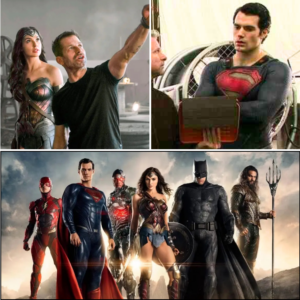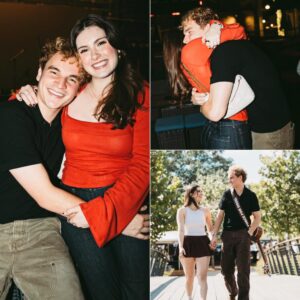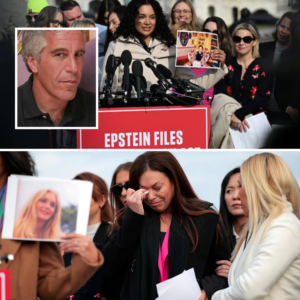In a rare and candid revelation, Hollywood icon Jodie Foster has shared the profound exhaustion she endured from repeated stalking incidents that have shaped her fiercely private persona. Known for her Oscar-winning roles in The Accused and The Silence of the Lambs, Foster’s life off-screen has been marred by unwanted intrusions, prompting her to shield her personal world with an iron resolve. This intimate disclosure, made during a recent interview, peels back the layers of a star whose public silence on her private life is less a choice and more a necessity, challenging the establishment’s glossy portrayal of celebrity resilience and raising questions about the true cost of fame.
The Weight of Intrusion
Foster’s struggles with stalkers began early, casting a long shadow over her career and personal life. The most infamous incident involved John Hinckley Jr., who, obsessed with her portrayal of a teenage sex worker in Taxi Driver (1976), attempted to assassinate President Ronald Reagan in 1981 to impress her. At just 18, Foster was a freshman at Yale University when Hinckley’s fixation escalated from letters and phone calls to a violent act that wounded Reagan and three others. The aftermath was chaotic—media swarmed her campus, Secret Service agents shadowed her, and she was whisked to a safe house. “It was a traumatic moment,” she admitted in a recent interview, reflecting on how this event disrupted a college play she was performing in, an experience she says contributed to her decision to abandon theater.
But Hinckley wasn’t the only threat. Foster revealed multiple stalking episodes, including a copycat who planned to kill her but reconsidered after seeing her onstage, and another incident in the 2000s involving Michael Smegal, who sent bomb threats and threatening letters over years. More recently, in 2016, an obsessed woman named Celine Martelluer prompted Foster’s wife, Alexandra Hedison, to secure a restraining order after repeated intrusions. These relentless invasions left Foster feeling “exhausted,” a sentiment she rarely voices publicly. “It’s been a lifetime of having to navigate that,” she said, her voice carrying the weight of decades spent evading unwanted attention.

A Life Under Siege
The Hinckley incident, in particular, marked a turning point. After the assassination attempt, Foster faced a media frenzy that she described as a “cavalry invasion,” with reporters trampling her privacy. She minimized public statements, famously telling the press she intended to “resume my normal life,” a resolve tested by Hinckley’s trial outburst, “I’ll get you Foster!” His eventual release in 2016, with conditions barring contact, offered little relief, as the memory lingered. This pattern of intrusion—letters, calls, and physical proximity—forced Foster to adopt a guarded stance, a stark contrast to the open lives many celebrities are pressured to lead today.
Foster’s exhaustion isn’t just physical but emotional. She recounted how, during her Yale play, the presence of a stalker with a gun in the audience led to a humiliating on-campus rescue by bodyguards, an event that left her questioning her safety. This recurring threat shaped her career choices, steering her away from live performances where vulnerability is heightened. “I’ve never admitted that maybe that has something to do with how I never wanted to do a play again,” she confessed, a rare glimpse into the trauma that reshaped her path.
The Price of Privacy
This relentless stalking has driven Foster to prioritize privacy above all else, a decision she articulated in her 2013 Golden Globes acceptance speech for the Cecil B. DeMille Award. “I hope you’re not disappointed there won’t be a big coming-out speech tonight,” she quipped, referencing her long-private sexual orientation, which she had shared with close circles years earlier. “If you had been a public figure from the time you were a toddler, if you’d had to fight for a life that felt real and honest and normal against all odds, maybe you too might value privacy above all else.” This wasn’t a rejection of openness but a plea for control over her narrative, a response to a life where personal boundaries were repeatedly breached.
Foster’s guarded nature extends to her family life. Married to Hedison since 2014, with two sons, Charles and Kit, from her previous relationship with Cydney Bernard, she has kept them out of the spotlight. Her sons’ early misconceptions about her career—once thinking she was a “construction worker” due to her frequent absences—highlight the sacrifices she made to shield them. This privacy, she told The Atlantic, is a “lifetime struggle” to be understood on her terms, a counterpoint to the establishment’s expectation that celebrities bare all for public consumption.
Challenging the Narrative
The establishment often portrays celebrities as thriving under scrutiny, their personal struggles glossed over as part of the fame package. Foster’s story challenges this myth. Her exhaustion from stalking isn’t a badge of honor but a burden that shaped her career and identity. Critics might argue her silence on these incidents—beyond a 1982 Esquire essay titled “Why Me?”—reflects a privilege to retreat, but this overlooks the active effort required to maintain that retreat. The media’s role in amplifying Hinckley’s actions, turning her into a unwilling centerpiece, underscores a systemic failure to protect rather than exploit.
Some might question why Foster didn’t leverage her platform to address stalking more publicly, suggesting her reticence perpetuates a culture of silence. Yet, her choice to limit discussion—canceling appearances where Hinckley might be raised—reflects a strategic reclaiming of agency, not avoidance. This contrasts with the industry’s tendency to sensationalize such incidents, as seen in the dramatization of Hinckley’s obsession in Assassins, where her trauma becomes a plot point rather than her lived reality.
A Legacy of Resilience
Despite the toll, Foster has thrived, earning recent accolades for Nyad and True Detective: Night Country. Her resilience is evident in how she transformed her experiences into a nuanced understanding of privacy’s value. “I want to be seen, to be understood deeply, and to be not so very lonely,” she said in 2013, a desire for connection balanced by a need for boundaries. This duality informs her mentorship of younger actors, like Bella Ramsey, whom she praised for authenticity, suggesting a hope to guide a new generation away from the pitfalls she faced.
Her marriage to Hedison, a photographer and director, offers a stable anchor, with the couple collaborating on creative projects that reflect their shared values. Foster’s sons, now in their 20s, have grown up with this ethos, their lives kept private as a legacy of her protective stance. This contrasts with the public narratives of other stars, like Kate Winslet’s high-profile bond with Leonardo DiCaprio, highlighting Foster’s unique approach to fame.
Public and Industry Reflection
The revelation of her exhaustion has sparked mixed reactions. Fans on social media admire her strength, with posts like “Jodie’s privacy is her power,” while others debate the industry’s role in enabling stalkers through its obsession with personal details. This discourse challenges the establishment’s narrative that fame is a fair trade for privacy loss, suggesting a need for better protections. Some argue her silence might have shielded Hinckley’s infamy, but Foster’s focus was survival, not shaping his legacy.
The industry, often criticized for exploiting young talent, might use her story to justify tighter security, yet her experience also calls for cultural shifts—reducing the glamorization of stalking narratives like Hinckley’s, dramatized in media. Her guarded life, a response to repeated violations, invites a broader conversation about consent and autonomy in the public eye.
A Personal Triumph
As of June 2025, Foster continues to work, her recent Golden Globe win affirming her relevance. Her exhaustion from stalking, now openly shared, reframes her privacy as a triumph over adversity, not a retreat. “It’s about finding a way to live authentically,” she said, a lesson from a life under siege. This untold struggle, revealed in fragments, challenges us to see beyond the screen, recognizing the human cost of fame and the resilience required to guard one’s soul against its shadows.




